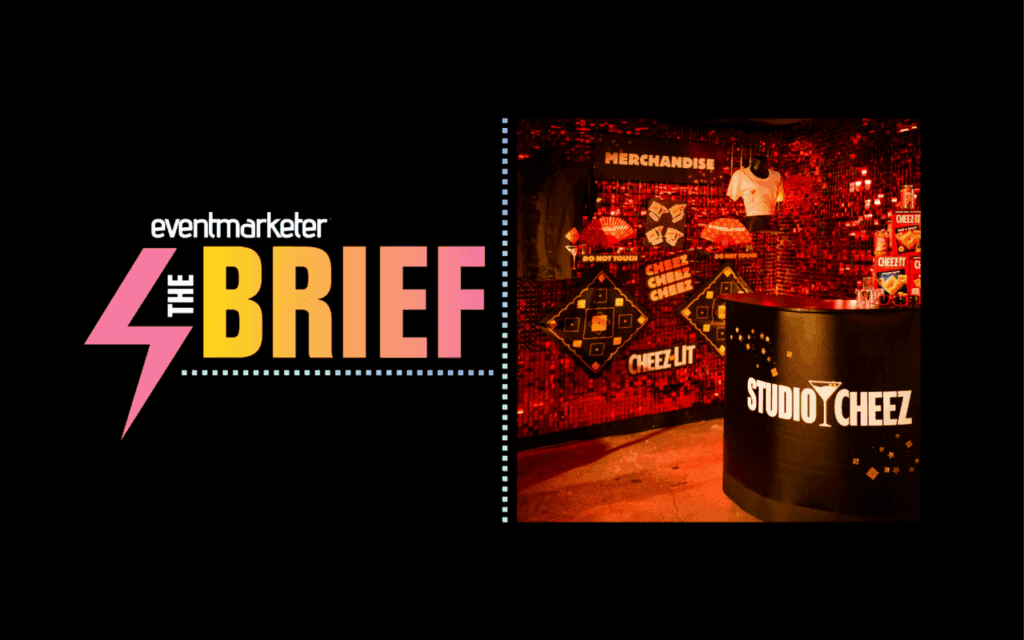If true one-to-one marketing is based on treating a particular customer differently based on data collected during an interaction, then CustomDisc is a true market leader. The company doesn’t merely customize its product offerings, it invites the customer to do so.
In 1997, the Stamford, CT-based firm created one of the Internet’s first tailor-made CD-only sites, eventually reaching licensing agreements with 150 record labels – from tiny self-financed labels to majors like Arista.
It’s a simple site that allows consumers to select up to 70 minutes of music from a library of some 250,000 songs.
“We want to match music at the song level with the right consumer,” says Larry Peryer, CustomDisc’s vice president of marketing.
“We also do a lot of direct niche-based marketing” he says, “so we’re really focusing our attention on the end user, not the music.”
By matching, say, not-so-well-known genres and songs with loyal, proven fan-bases, CustomDisc has emerged in the past year as a leading online music distributor, with sales volume that Peryer claims is “four times ahead of everyone else.”
The success can be attributed to the ease, speed and sheer volume of CustomDisc’s service: With a click and a credit card, a consumer selects his or her favorite tracks, the order in which they are to appear on the CD, and then the request is processed in about 20 minutes. The CD is created and arrives at the consumer’s doorstep the following day, complete with a personalized jewel case.
Peryer says that the impact of custom CDs on the music business is “the same as what the VHS had on the movie industry – a new distribution that grows the industry as a whole.”
Not that CustomDisc is alone in the market.
Its main competitor – Reston, VA-based MusicMaker.com – offers 200,000 tracks, soon to be augmented by 500,000 when licensing clears on a huge chunk of the EMI back catalog. And MusicMaker has an advantage – unlike CustomDisc.com, it is a publicly traded company in which EMI has a 40% stake.
Both companies have gotten into marketing arrangement with the big brick-and-mortar stores.
CustomDisc, for example, signed a big deal with Tower last year; by year’s end, the retail giant will synchronize its in-store marketing with CustomDisc’s.
“We have marketing arrangements with retailers like Tower and Transworld, and what they do on their Web sites is offer a custom disc store,” says Peryer.
“We built the Tower custom disc store,” he says, “and it has their interface, their feel, the product is branded to them, but we’re the commerce technology partner – we do the licensing and the marketing.”
“Our challenge,” he notes, “is to extend that into the brick-and-mortar, and do custom-CD promotions in the store.”
One CustomDisc.com specialty has been to link purchases of a new album by a beloved artist with an option to get a premium price on a CustomDisc with bonus tracks – as was just recently done with CustomDisc and Sarah McLachlan. “Then the marketing takes over,” says Peryer, “and we work very closely with the label partners to find out what their priority releases are.”
Though it too has deals with large stores, MusicMaker has taken a different marketing tack. “We’re focusing not so much on artist promotions but on packages deals,” says Larry Lieberman, vice president of marketing, advertising and online development for MusicMaker.
That’s largely because the company snagged an exclusive marketing relationship with Columbia House, the most popular non-store music retailer, to serve customers of both its catalog and Web site.
“There’s music to scratch every itch on Columbia House,” says Lieberman. “And we now have the ability to put together all kinds of subsets of music, offer gifts for purchase, and we have the brand name.”
What does the music business say about the custom-CD phenomenon?
Opinions are mixed.
On the one hand, it seems like easy money for the industry. CustomDisc pays top royalties to labels for music that might otherwise collect dust, and the label also retains the right to remove a particular song or album from CustomDisc’s site – if, for example, the label is planning a greatest hits package of its own, and wants exclusivity over the track or album.
“We license entire catalogs from labels – or partial, exclusive or non-exclusive – for three to five years,” says Peryer.
Industry analysts, however, say the Internet hype factor might not be enough to keep these companies profitable.
“The music’s not new, not popular, not economically viable on the store shelves,” says Mark Hardie, senior analyst at Forrester Research. “They’re not selling current stuff,” he says, “which is where the money is for the labels. The industry has said, we’ll give small amount of content temporarily to see how they do.”
And the record industry is well aware of the danger of putting high-yield music on the Internet.
“The main problem,” says Jeremy Silver, vice president of new media for EMI Recorded Music of America, “is that many major artists don’t want to see their music treated like this.”
“Musicians spend a lot of time on the order and the arrangement of an album,” he says, “and [they] are particular about the way things are arranged.”
In fact, some observers worry that the custom CDs and downloadable music sites like MP3.com will lead to the demise of the traditional album format.
Though he thinks that the album format will never die, Hardie predicts “an increase in focus in nonalbum products, or products that are digitally delivered,” he says, noting, “Those economics will be difficult as hell to figure out.”
For example, if a label releases a few songs every few months instead of a whole album, how will they be priced?
“Are they worth $3?” asks Hardie. “The industry will have to deal with that.”
In fact, digital singles could eventually cannibalize album sales.
“It’s worth $17 if you buy the [album], but if you buy the single, the industry only gets the $2 or $3,” he continues. “That fact will keep companies like CustomDisc from licensing new music.”
The success of the new online distribution mechanisms will be significantly dependent upon consumers’ appetite for the immediate gratification and the convenience of this model.
But, as Hardie argues, the people for whom a “tactile” element is so important are exactly those who aren’t spending money on old classic rock chestnuts.
“The tactile element is very important in creating and branding and promoting new artists to teens and twentysomethings,” he says. “They want the content, but they also want an Internet component. So you’ll see the labels start distributing electronic press kits to consumers, picture galleries, that sort of thing.”
Still, the record industry does see the great potential for new sorts of personalized music products, and for that reason has agreed to ride the custom-CD phenomenon.
“We believe there is a tremendous new market in relation to CD compilations,” says EMI’s Jeremy Silver. “The most exciting is the gift market. Say it’s grandma’s birthday – you can compile a CD of music she likes, with your photograph for the cover art, and send it gift-wrapped. That’s a wonderful thing.”
 Network
Network

